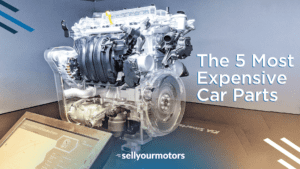Extending the life of your vehicle’s engine is an important part of keeping your car running smoothly. A well-maintained engine will last longer and perform better, leading to fewer repairs and less money spent on replacements. With the right precautions and maintenance, you can ensure that your engine runs at its best and keeps you on the road for years to come. In this article, we will discuss some of the proven ways to extend your engine’s life and make it running smoothly, including regular oil changes, using the right fuel, and inspecting and replacing filters regularly. By implementing these simple tips, you will be well on your way to a longer-lasting and more reliable engine.
Extend the Life of the Engine: Regular Oil Changes
One of the easiest ways to ensure that your engine will last longer is to perform regular oil changes. Oil is what keeps your engine lubricated and running smoothly, but over time it will break down and lose its effectiveness. By constantly replacing your oil with fresh, clean oil, you will avoid contamination and ensure that your engine will last longer. Although there is some debate over when you should change your oil, the general consensus is that doing so every 3,000 miles will help extend the life of your engine. Oil is relatively inexpensive, and with regular changes, you will avoid costly repairs in the long run. If you are looking for a new car, make sure to research the different engines available and find out how often they should be changed. Some engines will require more frequent oil changes than others.
Extend the Life of the Engine: Use the Right Fuel
Fuel is one of the most important components in any engine. The wrong fuel can cause major damage, whereas the right fuel will help extend the life of your engine. You can avoid costly repairs by choosing the right fuel for your engine. Gasoline – As a general rule, you should use gasoline that is low in sulfur. While many newer engines can handle regular gasoline, others may require a low-sulfur blend. You can find out what type of gasoline your engine requires by checking your vehicle’s owner’s manual or on the vehicle itself. A low-sulfur blend will help prevent corrosion in your engine and help extend the life of your vehicle. Diesel – If you drive a diesel vehicle, it is important to use diesel fuel in your engine. Diesel and gasoline are two very different types of fuel, and mixing them together can cause major damage to your engine. Diesel is significantly more expensive than gasoline, so if you don’t own a diesel car, it is important to avoid using it. Diesel is typically more expensive, but it is important to use the right fuel in order to extend the life of your engine and avoid costly repairs down the road.
Extend the Life of the Engine: Inspect and Replace Filters
As part of your regular maintenance, you should inspect and replace filters regularly. Filters are used to catch contaminants and keep them from clogging your engine and causing damage. Some of the most important filters to inspect and replace regularly include the following: Air filter – The air filter removes dirt and debris from the air that is entering your engine. Over time, the filter will become clogged with dirt, reducing air flow and causing your engine to work harder. It is recommended that you replace the air filter every year or 12,000 miles, depending on your vehicle. A dirty filter will cause your engine to run hotter and use more fuel. Fuel filter – The fuel filter is what keeps dirt and contaminants from reaching your engine. Over time, this filter will become clogged, and it is important to replace it regularly. You should replace the fuel filter every year or every 20,000 miles, depending on your make and model. Oil filter – The oil filter is used to prevent contaminants from reaching your engine oil. As with the other filters, it is important to replace it regularly. Most manufacturers recommend replacing the oil filter every year or 10,000 miles.
Clean and Maintain Spark Plugs
Spark plugs are responsible for igniting and combusting fuel in your engine. Over time, they will begin to wear out and lose their effectiveness. You should clean and maintain your spark plugs regularly to help extend their life. It is recommended that you clean your spark plugs every 30,000 miles and replace them every 60,000 miles. Cleaning your spark plugs is an easy process that can be done at home with a few tools and a little bit of time. Spark plugs are relatively inexpensive, and replacing them regularly can help extend the life of your engine. Spark plugs are also a great indicator of your vehicle’s overall health. If they are fouled or have a bad connection, your engine may be having other problems that you don’t know about.
Keep the Coolant Clean
The coolant used in your vehicle’s engine is what keeps it from overheating. As it circulates, the coolant will collect dirt and debris, which can clog the system and cause your engine to overheat. It is important to maintain the cleanliness of your coolant to ensure that it is effective in its job. You can clean the coolant at home by adding a coolant cleaning kit to your coolant change. Doing so will help extend the life of your engine and avoid costly repairs down the road.
Check and Replace Belts
Belts are important components in your vehicle that help power many of the systems that are essential to the operation of your engine. Over time, belts will begin to fray and lose their effectiveness. If you notice that a belt is frayed or loose, you should have it inspected and replaced immediately. It is important to inspect and replace belts regularly in order to prevent them from breaking down and causing damage to your engine. It is important to note that belts may vary depending on the make and model of your vehicle, so it is important to read your owner’s manual and have a professional check them for you.
Inspect the Radiator
The radiator is important for keeping your engine cool. You can help extend the life of your radiator by making sure it is clean and free from debris. You should clean and check your radiator every year, especially if you live in an area with harsh winters or consistent use of the heater. You can clean the radiator yourself by adding a radiator flush to your cooling fluid change. It is important to note that your radiator will eventually need to be replaced. However, you can help extend its life by keeping it clean and free from debris.
Check the Battery
Your battery is responsible for providing power to your vehicle’s engine, and it will eventually lose its ability to hold a charge. It is important to inspect your battery regularly to ensure that it is in good condition and will last as long as possible. You can do this by checking the voltage of your battery. If it is below 12 volts, you should consider having it replaced. It is also important to keep your battery clean and free from corrosion. You can do this by cleaning the terminals and wrapping them in electrical tape. More importantly, you should have your battery tested by a professional every couple of years. This will help ensure that it is in good condition and will last as long as possible. It is also important to maintain your battery, especially in cold weather. You can do this by keeping it clean and free from corrosion and topping it off with distilled water as needed.
Conclusion
A well-maintained engine will last longer and perform better. By implementing the proven ways to keep your engine running smoothly, you will be well on your way to a longer-lasting and more reliable engine. Regular oil changes, using the right fuel, and inspecting and replacing filters will help extend the life of your engine and prevent costly repairs in the long run.
Sell Your Motors
Car buying specialists are your best bet when you want to sell your car fast for a fair price. At Sell Your Motors we pride ourselves for being transparent and completing the whole car buying process in only 30 minutes!







